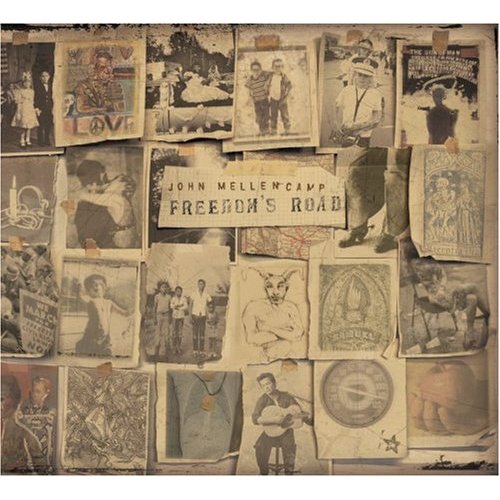
Freedom's Road (2007)

1. Someday
2. Ghost Towns Along the Highway
3. The Americans
4. Forgiveness
5. Freedom's Road
6. Jim Crow
7. Our Country
8. Rural Route
9. My Aeroplane
10.Heaven is a Lonely Place
11.Rodeo Clown
By the mid-2000s, John Mellencamp had long since accepted that his days as a chart-topping hitmaker were in the rearview. Radio had moved on, the spotlight had dimmed, and yet he kept going—stubbornly, honestly, and often with something to say. Freedom’s Road, released in 2007, stands as one of the rare late-career albums that doesn’t just try to recapture past glories, but instead, redefines what an aging artist can still offer. It’s also the first time in a long while that Mellencamp’s politics don’t feel like a soapbox tantrum, but rather a mature, focused voice in a country wrestling with its identity.
In many ways, Freedom’s Road is the kind of record you might’ve expected Mellencamp to make at this stage—earthy, plainspoken, and rooted deep in American soil. The production is clean but never slick, and the arrangements keep one foot in folk-rock tradition while still managing to carry a modern edge. Tracks like The Americans play like the spiritual descendant of Pink Houses—observational, proud, and conflicted all at once. It’s the closest he’s come to a true anthem in decades, and it lands without sounding like a rewrite.
The tone throughout the album is strikingly balanced. For once, Mellencamp doesn’t sound like he’s yelling at the wind. Instead, there’s introspection, a surprising hint of optimism, and even a sense of grace. Jim Crow, featuring Joan Baez, is a thoughtful take on the persistence of inequality—it doesn’t lecture, it lingers. Rural Route is stark and somber, its quiet delivery making its message all the more potent. Even the more bitter moments feel earned rather than reactionary.
Of course, the elephant in the room is Our Country—a solid, heartfelt tune that unfortunately became overplayed into oblivion thanks to a Chevy truck ad campaign that made it inescapable. Mellencamp defended the decision at the time, claiming it was the only way to get his music heard in an industry that had largely turned its back on older artists. He may have had a point, but the song deserved better than to be reduced to commercial wallpaper.
Oddly enough, the most biting political moment comes in a hidden track—Rodeo Clown—a swaggering, bluesy takedown of the Bush-era circus that sounds like it could’ve been lifted from a late-period Stones record. It’s sly, snarly, and a reminder that when Mellencamp aims carefully, he can still hit hard. The only real misstep is Ghost Towns Along the Highway, which tries for weight but never really takes off musically. The song sounds a little stuck in neutral compared to the rest of the record.
Freedom’s Road isn’t just one of Mellencamp’s better later-day albums—it’s a reminder that when he reins in his excesses and leads with conviction instead of attitude, he’s still one of America’s most vital musical voices. A welcome return to form.
Go back to the main page
Go To Next Review